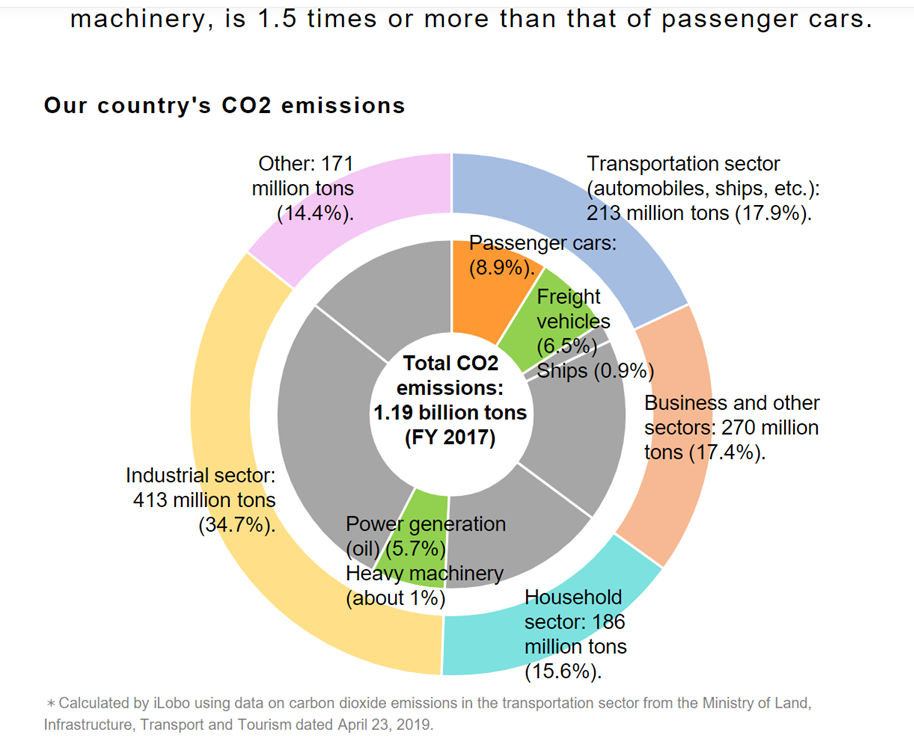Business Background
In July 2021, the EU announced its policy to end sales of new CO2 emitting gasoline and diesel vehicles (including hybrid vehicles) by 2035. In Japan, too, a government target has been set to reduce CO2 emissions to 46% of the fiscal 2013 level by 2030. In the transportation sector, which accounts for about 20% of CO2 emissions, the reduction of CO2 emissions from heavy-duty commercial trucks in particular is an urgent issue.
The internal combustion engine (engine) is a technology that has been optimized over many years as an essential power source for the development of modern industry, but concerns about environmental degradation caused by emissions from fossil fuels have increased in recent years. In the automotive industry, the development and commercialization of EVs and FCVs (fuel cell vehicles) powered by electric motors is being promoted mainly in the passenger car sector as a solution for the elimination of fossil fuels. And while the greening of the internal combustion engine itself has been overlooked in the market, we believe that the hydrogen internal combustion engine is an option.
The internal combustion engine is a key technology that contributes to many market sectors other than passenger cars, such as heavy trucks/trailers, ships, heavy machinery, and generators that require high power output on a continuous basis, while adapting to various environmental conditions.
Although each of these markets is small compared to the huge passenger car market, the total amount of greenhouse gases currently emitted by these markets is 1.5 times the amount of emissions from all passenger cars (in the case of Japan). Incidentally, Japan has more than 1.5 million trucks with payloads of 4 tons or more, each of which emits more CO2 than a passenger car.

Our Approach
The “hydrogen conversion” of existing commercial trucks to zero CO2 emissions will greatly contribute to the early realization of a decarbonized society.
One of our initiatives is the Life Cycle Assessment, which is being standardized as environmental management by ISO (International Organization for Standardization). Many major Japanese companies have adopted this method in their CSR (Corporate Social Responsibility) reports. Since hydrogen conversion is a conversion of existing vehicles, it is an effective technology from the perspective of LCA as it can significantly reduce the amount of CO2 generated in the vehicle manufacturing process.
Furthermore, hydrogen conversion will contribute to the continuation and development of the maintenance business by providing standardized technology to highly skilled auto body shops, thereby maintaining employment in the engine manufacturing industry, which is one of Japan’s strengths.
How to make it happen
In order to popularize trucks and heavy equipment equipped with hydrogen internal combustion engines, we believe that B-to-B hydrogen stations installed at truck terminals, where large amounts of fuel consumption can be expected, are the key to improving operation rates, not to mention reducing the cost of hydrogen as a raw material by increasing demand. Therefore, we are aiming to establish a cost model that is expected to be economically acceptable for truck operations using hydrogen fuel.